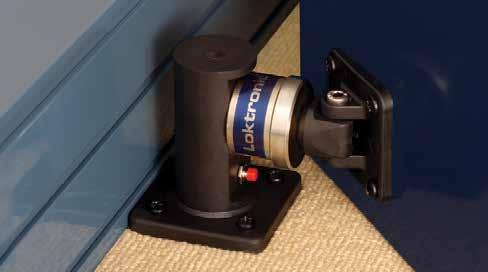Women in Security Awards Aotearoa are back for 2023!
Christchurch plays host to New Zealand Security Awards www.defsec.net.nz

ICT celebrates 20 years of taking NZ security to the world






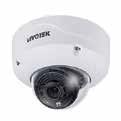












Women in Security Awards Aotearoa are back for 2023!
Christchurch plays host to New Zealand Security Awards www.defsec.net.nz

ICT celebrates 20 years of taking NZ security to the world



















Organizations of every size and type rely on electronic access control to secure their premises and help people move around safely and efficiently. ASSA ABLOY offers a broad range of access solutions that can be installed without wiring at the door.


Our wireless access control solutions can upgrade existing security or build a completely new access system. You can choose between programmable key-based electronic access control and a system with smart cards or mobile keys stored on a smartphone.
ASSA ABLOY’s battery-powered solutions protect small and large organizations with devices for any type of door, as well as non-door openings such as cupboards, gates, elevators and more.
A choice of software and administration options enables security managers to run access control from an app, locally from a dedicated PC or securely in the cloud, with a fully hosted solution if required.
www.assaabloy.com/nz

From multi-residential homes to hospitals and labs to loading bays, we are there when you tap a key card, turn a lock, or walk through an automatic door. We make sure people, goods and information move safely and smoothly through the world.Integral Abloy Beat eCLIQ Smartair
Kia ora and welcome to the October-November 2023 issue of New Zealand Security Magazine! It’s awards season, and this year saw Otautahi Christchurch play host to the big event – we cover all the winners in this issue of NZSM! Also, nominations are now open for the fourth running of the Women in Security Awards Aotearoa – details inside.
As always, a big thanks to our wonderful advertisers. As I keep reiterating, quality journalism and expert commentary comes at a cost, and our advertisers play an important role by contributing to a vibrant and informed security sector through their sponsorship of the magazine.
Our gratitude extends to our supporters (both print and online) and leading manufacturers and distributors Loktronic, ASSA ABLOY, simPRO, Provision-ISR (SWL), Hikvision, Bticino (Innovation Central), and Vivotek (Clear Digital). We’d also like to recognise our association partners for this issue, the New Zealand Security Association, ASIS International New Zealand Chapter, Massey University’s Centre for Defence and Security Studies, and the New Zealand Security Sector Network.
NZSM was again proud to be a category sponsor at this year’s New Zealand Security Awards, and it was an absolute honour to be at Te Pae to celebrate the amazing finalists and award winners. Congratulations to all of you, and especially to Neekita Prakash from FIRST Security who was awarded both the Patrol Officer of the Year and the 2023 Security Professional of the Year Award!
Also inside, we look at the recently published World Security Report 2023, which studies the opinions of 1,775 CSOs from 30 countries. According to the report, companies anticipate a surge in security threats related to economic unrest, social unrest, climate change, fraud and theft. As a result, physical security budgets are predicted to increase significantly to enable investments in technologies and training.
Nick Dynon Chief EditorNick has written for NZSM since 2013. He writes on all things security, but is particularly fascinated with the fault lines between security and privacy, and between individual, enterprise and national security.

Prior to NZSM he clocked up over 20 years experience in various border security and military roles.
Disclaimer:
The information contained in this publication is given in good faith and has been derived from sources believed to be reliable and accurate. However, neither the publishers nor any person involved in the preparation of this publication accept any form of liability whatsoever for its contents including advertisements, editorials, opinions, advice or information or for any consequences from its use.
Copyright:
No article or part thereof may be reproduced without prior consent of the publisher.
As another General Election draws near, so does the likelihood of disruptive and violent political activism. Waikato University’s Professor Alexander Gillespie notes that activists are resorting to increasingly disruptive forms of protest, and governments are hitting them with increasingly harsher penalties, but what’s the long term solution?
There’s plenty more great reading inside this issue of NZSM, so I hope you enjoy. Also, if you haven’t already, consider subscribing to our regular eNewsletter THE BRIEF. It’s a great way to keep up-to-date with the latest. Details on the Defsec website.
Lastly, from the team here at NZSM, congratulations to all nominees, finalists and award winners at the New Zealand Security Awards, and congratulations to the NZSA for again putting on a great event! And, don’t forget to get your nominations in for the 2023 Women in Security Awards Aotearoa!
Nicholas Dynon AucklandUpcoming Issue
December 23 / January 24
Contact Details:
Chief Editor, Nick Dynon
Phone: + 64 (0) 223 663 691
Email: nick@defsec.net.nz
Publisher, Craig Flint
Phone: + 64 (0)274 597 621
Email: craig@defsec.net.nz
Postal and delivery address: 27 West Crescent, Te Puru 3575, Thames, RD5, New Zealand
Retailers – The largest retails in the country by number of employees
facebook.com/defsecmedia
twitter.com/DefsecNZ
linkedin.com/company/ defsec-media-limited
Allows you to use your smartphone to receive calls locally or remotely to open the door/gate or activate cameras



Our innovative range of Bticino video intercoms have been a quality, reliable product serving commercial and domestic tenants in New Zealand for over 20 years.

Introducing Bticino Intercom Systems including optional Wi-Fi (app). This intercom system is not only fast and easy to install, but is robust enough to handle tough conditions; from multi-storey apartment towers including The Antipodean (pictured), to Auckland Hospital and large Aged Care Facilities nation-wide. From a trusted international brand Legrand, the Bticino door entry system features a modern and elegant design, capable of meeting all installation needs. Simple, smart, stylish.


Contact Matt: info@incnz.co.nz

October marks a significant milestone for ICT - the 20th anniversary of the company that began its journey as Integrated Control Technology on Auckland’s North Shore.
It’s another Kiwi success story – a tech-focused global company, built in New Zealand from the bottom up, that’s world leading and highly respected in its field and employs hundreds of people globally.
Emerging from the garage of founders Hayden and Rachael Burr, ICT has evolved into a globally recognised leader in unified access control and intrusion security solutions. CEO Hayden Burr shares his thoughts from the early days through to future global growth plans.

“Starting out, we wanted to be a little different. There was a noticeable void in the security market for ethernet connected, control-based devices. The idea came about from looking at how industrial automation transitioned from the classic PLC controller to something more integrated and connected. Some of this you can still see in the product today. We’re DIN Rail mounted, connected, and we’ve got a lot of automation function in the back end,” says Burr.
“My vision was a unification of access control, intrusion, and automation. That’s why the name Integrated Control Technology is universal and not just tied into security. The key for us was to keep it simple. Many existing products were needlessly complex and offered only singular solutions. We designed something that could handle intrusion, access control, or building automation independently, but shows its true power when combined.”
“The controller came out and had ethernet on board. After introducing this connectivity, we added further modules, devices, and integrations. This unified approach is still relevant today, perhaps to an even greater extent. As more and more devices become interconnected, it creates new opportunities to bring these into a unified ecosystem.”
“This mirrors a key shift that I’ve seen. Twenty years ago, having ethernet on an access control product was considered an add-on or external component. Connecting to software applications was convoluted, and ‘integration’ often meant a simple relay connection between two systems.”
“Changes in access control have been subtle yet significant. It’s always been about restriction but is evolving toward accessibility. How do we leverage technology to enable people to move freely while preserving safety and security of facilities?”
“Mobile phones are a great example. It’s led to almost zero-touch scenarios, but tech like this brings cybersecurity into the spotlight. It’s a constant threat that spans all industries.”
“The road hasn’t been paved with gold over the last 20 years. Take the evolution of Protege GX. It started in 2010, and there were growing pains. But we were not just sticking circuit boards in steel cans, we were changing the face of the industry with a plastic component, an industrial, commercial solution.”
“So yes, there were some challenges! But we’ve overcome those and delivered an exceptional product that is now mature in the market. The key is,
it’s not just me. I’m surrounded by incredibly talented people so when the chips are down, we can rally together to deliver outcomes. For me, it’s always about looking after the customer and making sure we solve those problems, 100% of the time.”
Putting people first
“I’m often asked what sets ICT apart. The answer lies in our people and values. Personally, I hold a deep connection to kaitiakitanga (guardianship). Being an avid outdoor person, this is fundamental to me. Importantly, guardianship extends to how we interact with people, not just within ICT but everywhere. I believe that our values resonate in how our
staff conduct themselves beyond the workplace as well.”
“Family is also embedded into the business. It extends from our staff to our partners, and to everyone who engages with us. Rachael, my wife (also Head of Finance and the other founder of ICT), still comes in most Fridays with her Mum to bake morning tea for the staff. It’s pretty impressive, especially now there can be over 200 people on site.”
The next 20 years
“For me, it’s about surrounding yourself with the right people at the right time to elevate the business to new heights. That’s why we made the decision to bring in Advent Partners.
Bringing in strategic investors naturally brings about changes, but all of these have been positive for our business. Their guidance and governance have been incredibly beneficial, enabling us to deliver the right outcomes in our markets.”
“In New Zealand, exciting things are on the horizon. Our new platform, Protege X, offers customers a cloud-based option with the latest cybersecurity features. There’s more innovations in the apartment space on the way that work in nicely with mobile credentials. It’s also crucial that we keep building strong relationships with our dealers and technology partners as we grow our unified ecosystem.”

“Our expansion continues around the globe too. We’re confident in our approach in Australia, EMEA, and the US and there’s some exciting developments planned for the next 12 to 24 months.”
“Everything is moving at 100 miles an hour, which makes ICT an incredible place to be. I’d like to thank everyone who’s been involved over the past 20 years – our loyal customers and partners, dedicated staff, and their families. It’s been a hell of a journey, and I can’t wait to see what’s in store for the next 20 years.”

According to Waikato University’s Professor Alexander Gillespie, activists are resorting to increasingly disruptive forms of protest, and governments are hitting them with increasingly harsher penalties. What’s the answer?

The most recent protest by the Restore Passenger Rail climate protest group, in which a Wellington car dealership was defaced with red paint, is not just the latest in a local movement – it’s part of a global trend.
Airline bosses have been hit with cream pies, Just Stop Oil protesters have glued themselves to iconic pieces of art in famous galleries, school students are skipping school to march for climate justice, and airport runways have been invaded. Everywhere, including in New Zealand, roads and highways have been blocked.
It’s entirely likely such protests will continue and escalate in their impact as the climate emergency worsens, and frustration grows with a perceived lack of meaningful government action. Groups such Extinction Rebellion view “non-violent direct action and civil disobedience” as not only justifiable but crucial in the face of what they see as an urgent existential threat.
But for every climate action there has been a political and legal reaction. From Europe to Australia there have been crackdowns. New laws have been
drafted in Britain to create specific offences such as obstructing major transport works, interfering with key national infrastructure, and causing serious disruption by tunnelling.
Earlier this year, a New Zealander living in Britain was given a “draconian” three-year prison sentence for his role in a protest that shut down a busy road in London.
With the stakes rising, it’s important that governments and legal systems find ways to adapt, without risking a climate protest arms race that may only encourage increasingly unreasonable impacts on the general public.
In New Zealand, a trend towards authorities reaching for harsher penalties is also evident.
The traditional sentence for obstructing a public road without consent is a fine of up to NZ$1,000. Such penalties are now being augmented with potential charges of criminal nuisance, and police have warned that protesters could face up to 14 years in jail for endangering transport.
That is longer than many serious crimes, including the maximum ten
years under proposed law changes for ram-raiding.
At the same time, protest is a critical part of free and democratic societies, and has been used (often in novel ways) to achieve change we now take for granted.
Although there is no specific right to protest in law, protesting is a manifestation of the rights to freedom of movement, association and peaceful assembly in most liberal societies.

Globally, such rights are protected by the United Nations Universal Declaration of Human Rights, and the related framework of human rights treaties. In Aotearoa New Zealand, the Bill of Rights Act 1990 guarantees those rights.


And yet, the right to protest is not absolute. As with most rights, it can be subject to such reasonable legal limits as can be justified in a free and democratic society.
In practice, this means not all forms of protest may be permissible, such as disorderly acts or ones that risk violence or public safety. Tolerance of protest and some levels of inconvenience should be expected in liberal democracies. But intentional and serious disruption to ordinary life may be illegal if it is done unreasonably.
Determining what is reasonable is the hard part. It involves assessing the scale and impact of the inconvenience, and the rights and freedoms of others affected.
So, peaceful protests that cause temporary inconvenience and limited obstruction might be permissible. But repeatedly blocking people from going about their business for prolonged periods may not be.
Climate protests exist at a moral and legal intersection. Reducing carbon emissions means targeting roads, highways and fossil fuel-powered vehicles by creating blockades and choke-points. But for centuries, authorities have been charged with keeping those vital routes open for citizens.
The challenge is to find the balance between two world views that are colliding. It’s wrong to try to silence legitimate dissent, but how do
governments and other authorities make room for, and even facilitate, a protest movement aimed at altering fundamental behaviours?
One response might be to designate new areas where such protests can be held (including on roads) as a way to help those messages be heard and seen. These must be authorised and conducted in ways that don’t unreasonably hinder the rights of other citizens.
But it is unlikely to be enough for more radical ends of the protest movement, which clearly view direct and increasingly disruptive actions as the only effective method.

There may be no simple answer. But New Zealand’s next government should review the current legal frameworks to ensure they are fit for purpose. People are equal before the law, and breaking the rules means being held to account. But the penalties must not be disproportionate.
Law and policy already acknowledge the climate crisis will demand enormous effort and change. They cannot also become blunt tools for repressing social movements dedicated to holding those same powers to account.
*This article was first published in The Conversation on 15 September 2023.
Provision-ISR is a fast-growing Israeli company founded in 2007 to meet the demand for high-quality products in the medium segment of the CCTV market.
Our wide range of products includes IP and HD technologies able to respond to the market’s diversified demand. Advanced CCTV software and APPs developed by our Israeli engineers intending to keep the user experience intuitive and straightforward.
Detect. Distinguish. Alert
DDA™ VIDEO ANALYTICS is part of the Artificial Intelligence features developed by Provision-ISR. Nowadays, the security market is changing fast, and Artificial Intelligence is changing the security industry’s rules by increasing detection accuracy and reducing false alarms. Our primary duty, as a manufacturer, is to offer the best AI solutions available.
The end of false alarms
Machine learning and the rapid development of deep learning approaches have revolutionized video analytics. Object Recognition technology consists of using the

“experience” gathered in data sets to recognise objects belonging to a particular type, based on specific characteristics typical for that type.
Based on smart object recognition technology, DDA™ VIDEO ANALYTICS allows the system to distinguish between HUMANS, 4-WHEELED VEHICLES AND 2-WHEELED VEHILCES. Thanks to this technology, the system triggers alarms or sends push notifications only when the desired object is detected. Doing so reduces annoying false alarms caused by shadows, light changes, shaking trees or animals.
The user draws a line in the scene and sets access permissions and the crossing direction. When the selected object (human, 2-wheeled vehicle, or 4-wheeled vehicle) crosses the line, the system will trigger an alarm. Example: If vehicles are not allowed to cross the line (but humans are), the system will
generate an alarm only when a vehicle passes. It will not initiate an alarm if a person crosses the line.
Application examples - Perimeter protection, home/office/shop safety, one-way street monitoring.
The user draws a virtual area in the scene and sets access permissions. When the selected object (human, 2-wheeled vehicle, or 4-wheeled vehicle) crosses the line, the system will trigger an alarm. Example: If vehicles are not allowed to access the site (but people are), the system will generate an alarm only when a vehicle enters the limited area. Also, the user can configure if entering/exiting the area will trigger an alarm.
Application examples – Emergency exit surveillance, pedestrian areas monitoring, car dealership monitoring.
The user draws a line in the scene and sets the access permissions and the crossing direction. The counting occurs when the selected object (human, 2-wheeled vehicle, or 4-wheeled vehicle) crosses the line. Example: If the observed vehicle counting area is set at the parking entrance, the system will monitor when the parking reaches the maximum number of vehicles allowed. Application examples – Monitoring the maximum capacity of a building/ area, vehicle counting in public and private parking, visitors/customers counting for marketing purposes.
Visit the NZ Provision-ISR website at www.provision-isr.co.nz. ProvisionISR is exclusively distributed in New Zealand by Security Wholesale Ltd –www.swl.co.nz


DDA VIDEO ANALYTICS allows the system to distinguish between humans, 4-wheel vehicles, and 2-wheel vehicles based on smart object recognition technology. Thanks to this technology, the system triggers alarms or sends push notifications only when the desired object is detected and, by doing so, reduces annoying false alarms caused by shadows, light changes, shaking trees, animals, etc.


A recently published Fortinet whitepaper echoes New Zealand’s new National Security Strategy’s concerns around the growing threat from malicious cyber activities.
Launched in last month, Aotearoa New Zealand’s first ever national security strategy breaks new ground in articulating a vision for navigating a dynamic security environment and the national security threats we face.

“The cyber domain is increasingly a theatre for strategic competition and profit, states Secure Together Tō Tātou Korowai Manaaki: New Zealand’s National Security Strategy 20232028 . The likelihood and disruptive impacts of malicious cyber activities impacting information systems, telecommunication networks, and information technology infrastructures is growing.
Cyber security means protecting people and their computers, networks, programs, and data from unauthorised access, disruption, exploitation, or modification, states the Strategy. “Malicious cyber actors, including state and non-state actors, present a persistent threat to all New Zealanders as well as New Zealand organisations, businesses, and government.”
“Beyond the risk of cyberattacks by nation states, organised crime and even lone cyber hackers have the intent and capacity to threaten businesses and individuals,” write Glenn Maiden and Nicole Quinn, authors of Fortinet’s Government and Industry: Partnering on Cybersecurity to Strengthen Data Security whitepaper.
“The security message is clear: whatever their origin, cyber threats present substantial new risks to individuals, businesses, governments, and nations,” they state. “Developing stronger security against such threats is an essential requirement.”
In addition to being listed as one of the twelve “core national security issues” identified in the National Security Strategy, cybersecurity plays a critical role across almost all of them. The four core issues of Emerging, Critical, and Sensitive Technologies; Disinformation; Foreign Interference and Espionage; and Transnational Organised Crime, for example, are clearly issues where cybersecurity is a key component.
Importantly, cybersecurity has a clear role to play in the core national security issue of Economic Security. According to the Strategy, economic security is about “building our resilience to shocks or external pressures, with the goal of safeguarding our independence and sovereignty”, and key to this is strengthening the resilience of our critical infrastructure
from cyberattack and other disruptions.
Critical infrastructure is an attractive target for cyber threats, write Maiden and Quinn, “which can be remotely delivered, such as malware arriving hidden in an email or enabled through some element of human intervention (the so-called insider threat) or by conventional military means.”
Cyber enabled disruption is not limited by geography, meaning New Zealand’s cannot rely on its relative geographic isolation. Exposed critical infrastructure is an attractive target to a financially motivated criminal in Europe. It is also a very attractive option to cause targeted disruption or manipulation by a hostile foreign power.
During covid, for example, we saw the level of intricate interconnectivity in our supply chains. We also saw how critical digital systems are to keeping our supply chains safe. A very minor cyber incident to a single component could easily cause widespread disruption. This is a compelling motive for a cybercriminal to extort a ransom or a hostile nation state wanting to make a point.
The Government’s ability to deliver on the National Security Strategy, state its authors, depends on working together with New Zealand society and with international partners. The bulk of cyber security capability and effort, they acknowledge, “occurs outside government, with individuals and private organisations working to protect their data, networked devices, and infrastructure.”
It’s a key point echoed in the Fortinet whitepaper. “Better cooperation between public and private entities will deliver greater visibility of threats with shared intelligence, better use of scarce cyber specialists, and better management of incident response,” state Maiden and Quinn. It’s about “working together on a shared protective mission.”
Advanced cyber defences capabilities from industry leaders like Fortinet are already installed in every industry, in nearly every country across the globe. Harnessing this “system of systems” for real time threat intelligence is a vital component to a nation’s security.

There is no silver bullet, which necessitates the bringing of a full arsenal of advanced technical capability to the forefront of our defence strategy. Many people think that a simple firewall is enough, but providers such as Fortinet have a range of technologies to protect cloud and Operations Technology (OT) environments, as well as advanced deception, endpoint and active threat reconnaissance capability.
By converging a platform of defence to every corner of the national attack surface, combined with exercised defence strategy we can significantly raise our national resilience, and minimise the impact of a cyber threat.
“Given the growth of cyber threats, it has never been more important for the New Zealand government to coordinate with a much broader group of stakeholders, partnering to protect our shared interests,” state Maiden and Quinn. “It needs to be clearly understood that securing cyber and physical infrastructure is a shared responsibility.”

Academy.
After more than 20 years in other vocational education providers, Andrew Shea has pivoted to bring his expertise in training to tackle the challenge of attracting and upskilling cybersecurity talent. Australia’s cybersecurity labour shortage is estimated to reach more than 30,000 workers by 2026.
Tesserent Academy was launched in April 2021 to address cybersecurity industry skills shortages.
“I am delighted that Andrew Shea has been appointed to the helm of Tesserent Academy,” said Tesserent CEO Kurt Hansen. “He will be pivotal in turbocharging the acceleration of Tesserent Academy’s recent acquisition of ALC Training, which has a 25+ year history and over 40,000 graduates.”
“Tesserent Academy will tackle the industry wide problem of talent shortages, to improve the cyber ecosystem and to develop talent for both Tesserent and our customers,” he said.
Twice recognised as CEO of the Year at the Executive Awards and landing a Lifetime Achievement Award at the 2023 Australasian Learner Impact Awards, Shea is one of the leading voices in Australia’s vocational education sector.
Shea has worked in several executive level roles across a range of tertiary education providers over the last 20 years including being CEO of two registered training organisations and head of internal learning and capability development at ASX-listed Simonds Group.
He was also formerly the CEO of one of Australia’s largest training providers that specialised in the delivery of qualifications for the security sector including physical security, private and government investigation, airport security including counter-terrorism, and electronic security systems.
“The ability to provide training and access to some of the nation’s brightest and best minds in cybersecurity will set apart the hands-on training that Tesserent Academy can provide and ensure our graduates are ready for the real world with knowledge of the best methods to thwart cybercrime,” said Shea.
“My focus is to demonstrate what the top of the mountain looks like for aspiring individuals. We will deliver training throughout the whole lifecycle, from graduates leaving high school seeking their start in cybersecurity, to mature age students looking to undertake a career pivot into a burgeoning area, as well as upskilling internal talent within Tesserent, its partners and clients. I believe there is significant opportunity for growth and uplift in student engagement throughout the financial year 2024 and beyond,” he said.
“I am excited to be spearheading Tesserent’s activity to uplift cybersecurity skills training and to encourage more females and people from a range of diverse backgrounds and across all age levels to pursue careers in cybersecurity”.

In 2022, Hanwha Vision surpassed one trillion Korean won in annual revenue on the back of revenue expansion in the global market, particularly in the United States, and new sales head Choong-Hoon Ha has big aspirations.

Hanwha Vision has appointed Choong-Hoon Ha as the new Chief Sales and Marketing Officer (CSMO). President of Hanwha Vision America for the past three years, Ha started out at Samsung Electronics in 2002 as regional sales manager for Asia and Africa and now has more than 22 years of experience in the industry.
As the President of Hanwha Vision America, Ha played a pivotal role in helping the company achieve its new goal of becoming a global vision solution provider. Ha reveals more in this abridged interview
Q: What has been the most significant change in the global security market during your tenure as President of Hanwha Vision America?
A: The most significant transformation in the global video surveillance market has been the full-scale integration of AI. The application of AI in the video surveillance industry is not new, but it has now become mainstream. However, the expectations surrounding the synergy of AI and cameras have risen to unprecedented levels.
In the past, AI in security cameras was primarily about detecting and identifying objects such as people and vehicles, reducing false alarms, and enabling swift searches. Today, the
industry is contemplating how to harness the vast amount of data collected by AI effectively. The emphasis has shifted towards user-centric data reprocessing and providing intuitive insights derived from this data.
Simultaneously, video surveillance companies that once favoured onpremises solutions are increasingly offering cloud services. This shift aligns with the heightened demand for more efficient utilisation of video surveillance solutions and is closely linked to the increased adoption of advanced AI technologies.
Q: Despite the pandemic, Hanwha Vision America achieved remarkable growth. What do you consider the most meaningful achievement during your tenure?
A: When I assumed the role of President of Hanwha Vision America, my primary goal was to build upon the solid business foundation laid by my predecessors, Soon-Hong Ahn and KiChul Kim, and further strengthen our brand presence in the local market.
To achieve this, we introduced the HITE (Hanwha Innovation and Technology Experience) Center in New Jersey, our first experience center in the United States, offering customers a first-hand experience of
Hanwha Vision’s products and vertical solutions. This hands-on experience approach for our customers translated into tangible business results. We are building additional experience centres in four regions across the United States and Mexico. Furthermore, we established the Hanwha Total Care Center (HTCC) to internalise warranty repair services. Shifting from third-party service providers to in-house services improved customer satisfaction. Establishing new warehouses in North and Latin America and creating the first Latin American subsidiary in Mexico enabled
faster product distribution, further enhancing Hanwha Vision’s leadership throughout the United States. We also achieved significant progress in our work culture and practices. One of my goals during my tenure was to create a more enjoyable work environment. To achieve this, we automated and enhanced various functions to increase operational efficiency and productivity. We strengthened daily communication with employees and fostered cultural exchange and harmony by hosting events that celebrated the diverse cultural backgrounds of our workforce. As a result, Hanwha Vision America achieved an employee retention rate of approximately 95%, even throughout the last 2-3 years during which there has been a shortage of talent acquisition for global companies.
Q: How do you plan to scale the success achieved in the United States to the global market?
A: Whether in the United States or other markets, proactive sales is the key to a company’s success. This means reaching out to customers first, listening to their stories, understanding their needs, and developing and presenting products and services to help them solve their challenges. Additionally, leveraging the company’s partner ecosystem, which serves as a growth engine, to maximise
the impact of proactive sales is crucial. To handle regional, economic, and regulatory differences in each country, we plan to collaborate closely with local teams and partners to expand Hanwha Vision’s share in the global market based on proactive sales.
Q: The company was recently rebranded as Hanwha Vision in March and has changed its mission to become a global vision solution provider. What does that mean?
A: The name Hanwha Vision encapsulates its determination to lead not only in video surveillance solutions but also in next-generation vision solutions that provide customers with essential insights for their business operations, thereby driving innovation in the global market.

Beyond the traditional role of security cameras in monitoring, Hanwha Vision aims to expand the scope by offering customised information and solutions through big data analysis, integration of action solutions that enable prevention and real-time response, and support for business operation strategies. These higher-level functions will lead the way in expanding the role of video surveillance solutions.
Q: What has the company learned from the pandemic, and what are the current industry trends?
A: The disruption of supply chains caused by the COVID-19 pandemic had far-reaching effects, affecting various industries worldwide, including the video surveillance market. However, companies that were wellprepared turned the crisis into an opportunity and found new avenues for growth. Through this experience, we have come to understand the importance of a company’s resilience and its ability to rebound and continue growing.
Hanwha Vision, for instance, minimised chip supply issues and risks by leveraging its in-house System-on-chip (SoC) technology. Through our factory in Vietnam and dedicated efforts in procurement and manufacturing, we managed to resolve component and product shortages. Consequently, despite the unprecedented pandemic, we sustained steady growth and strengthened our global presence by securing significant projects in various countries worldwide.
Another key to a company’s sustained growth is its commitment to sustainability. The practice of sustainability is directly linked to the survival of humanity and has become an essential consideration in various aspects of business operations. Sustainability was often overlooked in the past, but today, business success cannot be guaranteed without a focus on sustainability.
Q: What is Hanwha Vision’s flagship solution for this year?
A: As mentioned earlier, with the growing importance of sustainability, customer demands for products and solutions that help conserve energy have increased. Recently, Hanwha Vision unveiled SolidEDGE, the first serverless camera with onboard SSD that saves energy consumption associated with server management.
By using SolidEDGE, companies can significantly save costs, human resources, and energy consumption, as it eliminates the need for a separate server for storing video and managing events.
Video footage is a valuable target for criminals, writes George Moawad, Genetec’s Country Manager, Australia & New Zealand. A robust video data management lifecycle minimises the risk of footage falling into the wrong hands.

Threat actors are constantly on the lookout for their next valuable target. The rise of AI and machine learning has made video footage an increasingly valuable target as it can be used for creating deep fakes with images and voices that help them execute fraud and other malicious acts. Protecting video data is critical for blocking those attacks and as part of a responsible video data management lifecycle program.
New Zealand’s Privacy Act dictates that data must only be collected for a specified purpose with the consent of parties whose data is collected. It must be held securely and securely disposed of when it is no longer needed. Video data is simple to collect. Once a camera is deployed, the only significant limitation to data collection is storage. A robust video data management lifecycle ensures data is ethically collected, stored safely, used correctly and permanently destroyed. But it also helps to manage operation and capital costs my minimising storage costs as the only data that is retained is what is specifically needed. This reduces organisational risk and means that if a threat actor does overcome the defences, they will have access to a limited amount of data.
Building a robust video data management strategy requires a systematic view of data at every stage of its life. That starts at collection and ends with destruction.
1. Video collection
Only collect video data that which is required. The Privacy Act makes it clear that collecting data ‘just in case’ is not a reasonable justification for recording someone. If cameras are in place, people should be notified that they may be recorded and the purpose of those recordings.
2. Secure storage
Data must be handled securely. It should be encrypted when stored and when in transit across networks. That ensures that if a malicious party access to internal systems that the footage is of no value to them.
3. Controlled access
Video footage should only be accessed by authorised parties. Strong access control ensures that footage can only be viewed by people with specific permission. It also protects video from being accessed by rogue employees.
4. Retention periods
There may be regulatory obligations to retain some data such as when video captures a specific incident such as a criminal act, a workplace accident, or some other matter of importance. But a lot of other data is only of value for a transitory period. Review the footage on file and make decisions about what data needs to be kept and for how long.
5. Secure destruction
Data that is not needed should be securely deleted. This includes archival and backup systems as well as from operational environments. Secure deletion goes further than hitting the delete key. There are specific methods for deleting data so that it is unretrievable. The ease with which video data can be collected means a robust video management system that ensures secure storage and access, support for data retention policies and enables secure deletion is essential. Without a video data lifecycle management approach, organisations can find themselves fighting rising storage costs while holding a valuable asset that criminals will target.
STI-1130 Ref. 720-102
Surface mount with horn and spacer 255mm H x 179mm W x 135mm D
STI-13000-NC Ref. 720-090
Flush mount, no horn 206mm H x 137mm W x 69mm D

STI-13B10-NW Ref. 720-092
Surface mount, horn and label optional 206mm H x 137mm W x 103mm D
STI-1100 Ref. 720-054
Flush mount with horn 255mm H x 179mm W x 86mm D
STI-6518 Ref. 720-060 Flush mount, no horn 165mm H x 105mm W x 49mm D
STI-13210-NG Ref. 720-093




Surface mount, horn and label optional 206mm H x 137mm W x 103mm D

All STI ‘Stoppers’ are made of tough, UV stabilised polycarbonate. Many can be supplied with or without a 105 dB horn. Other models and sizes available including weather resistant options.
STI-WRP2-RED-11 IP67
Ref. 720-062R



























































































Also available in White.
STI-RP-WS-11/CN
Ref. 720-052W
Available in White, Green, Blue & Yellow.
STI-RP-GF-11/CN
Ref. 720-051G



















Available in White, Green, Blue & Yellow.
STI-RP-RS-02/CI
Ref. 720-058
Cover included. Flush Mount Available.
• Approved to EN54-11
• Current Rating: 3 Amps @ 12-24V DC, 3 Amps @ 125-250V AC

• Material: Polycarbonate

• Comes with Clear Cover
• 2 x SPDT switches
• Positive activation that mimics the feel of breaking glass.
• Visible warning flag confirms activation.


























• Simple polycarbonate key to reset operating element - no broken glass.




• Dimensions: 87mm Length x 87mm Width x 23mm Depth (Flush Mount) & 58mm Depth (Surface Mount)
STI-6255 Ref. 720-042
Mini Theft Stopper discourages inappropriate use of equipment. Sounds a powerful 105 dB warning horn when activated. Tough, ABS construction. Reed switch activation for cabinets and display cases or unique clip activation for freestanding equipment. Does not interfere with use of protected fire fighting equipment. Compact design 85mm H x 85mm W x 25mm D.
STI-6720 Ref. 720-047
Break Glass Stopper. Keys under plexiglas. Protects emergency keys from inappropriate use. Keys remain visible. Fast, easy installation. Simple, inexpensive plexiglas. 3 year guarantee against breakage of the ABS housing within normal use.


Battery Load Tester Ref. 730-101

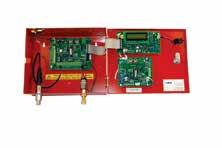

ViTECH, strong, lightweight aluminum case, 5, 15 and 30 amp battery load tester for fire and alarm use.


Weight: 500gms, Size: 165mm x 90 x 70mm.
Fire Brigade Alarm: (Closed/Open) Ref. 730-231
ViTECH branded Type X (730-230) and Type Y (illustrated) models with temperature compensated pressure transducers with digital display showing pressures for defect, fire and pump start.
Ref. 730-400 series
ViTECH AID for sprinkler valve monitoring; fits all ball valve sizes.



LOKTRONIC’s expansive product range has just become even wider with these first class EGRESS and FIRE PROTECTION
and PROTECTIVE COVERS.
ViTECH products are designed and produced in New Zealand.
In this abridged September update, NZSA CEO Gary Morrison covers Fair Pay Agreements, the latest Saved a Life Medal recipient, Security Career Pathway website, the jailing of a security company owner, and more.
Whilst the future of FPAs may be dependent on the outcome of October’s election, it is important to note that the legislation is in place and where approved applications for FPA bargaining exist, there is a legal obligation on employers of covered employees and other stakeholders (including the NZSA) to comply with the specified process and timelines.
The latest recipient of the Saved A Life Medal is Josh Beckham, Supervisor for Allied Security.
Gary Morrison is CEO of the New Zealand Security Association (NZSA). A qualified accountant, Gary was GM of Armourguard Security for New Zealand and Fiji prior to establishing Icon Security Group.

For employers of staff covered by the Security Officer FPA, you should have by now circulated the Etu communications to all impacted staff and have forwarded the MBIE Employee Contact Details spreadsheet with a listing of all covered staff and their contact details back to Etu. If you have yet to action this, it should be expedited or if you have any questions or concerns, you can reach out to the NZSA for guidance.
In coming days, we should receive from MBIE confirmation of the approved bargaining parties to the Security Officer FPA. Once we receive this information, we have a 20-working day window in which to document and confirm inter-party side agreements with each bargaining party.
These agreements will lay out details on how the parties will work together once bargaining commences and will include the structure and composition of the bargaining teams.
We will provide further information on this process to our members via the separate FPA mailing data base.
The awarding of the medal recognised the heroic efforts of Josh in early June when he responded to a call from a security officer who was being assaulted by offenders at a customer site in Tauranga Crossing. Arriving at the site within minutes of the call, Josh ensured the safety of the guard before applying first aid to the guard who had injuries to his eye socket, jaw and throat during the 20-minute wait for ambulance attendance.
During the event Josh was able to give comprehensive first aid, keep the guard conscious, and keep his composure, whilst also alerting the local Operations Manager and the client to the event and providing regular updates.
To see the full story of Josh’s heroic actions, please see the NZSA website. We also remind our members, and wider public, that nominations can be submitted via the NZSA website.
As highlighted in our July newsletter, the Employment Relations (Extended Time for Personal Grievance for Sexual Harassment) Amendment Bill came into force on 13 June 2023.
All new Employment Agreements must now include a reference to the 12-month period for raising a personal grievance for sexual harassment.
Existing employment agreements are not required to include such a reference, but the 12-month period for raising a personal grievance for sexual harassment will still apply. The 12-month period begins from the date on which the action alleged to amount to the personal grievance occurred or came to the notice of the employee, whichever is later.

In our last newsletter we advised that we had applied for the inclusion of Security Technicians on the Green List and were reasonably confident of a favourable response.
The approval list is currently sitting with Government for sign-off and despite communication in July that confirmation was expected “in coming weeks”, nothing has been released to date.
We appreciate that this is an important issue for electronic security providers, and we will certainly communicate the outcome once known.
Several years ago, the NZSA created the Security Career Pathway website as a resource for the industry, those looking at the industry as a career option, and other stakeholders including MSD, school career advisors and training providers.
The website provides comprehensive information on a wide range of security roles, including job requirements, training, licensing, indicative pay scales and promotional pathways, and also includes a number of videos featuring staff talking about their jobs and what they find rewarding.
We recommend checking out the website and welcome any feedback, including updates on the information provided, and also additional videos for inclusion.
The new Incorporated Societies Act 2022 comes fully into force on 5 October 2023 however in order to function as intended, it must first be supplemented by the passing of a range
of Regulations which at this time are still under consultation and have yet to be finalised.
The NZSA will need to reregister under the new Act but given we have a two-and-a-half-year window in which to file our new registration, we believe it is prudent that we wait for the finalised Regulations to be published before we finalise changes required to our current Rules. We do not envisage any significant changes however one obvious requirement will be to retitle our Rules and By-Laws to read Constitution.
Our current planning is that we will work through all necessary changes and amendments early next year and document them fully, with explanation, for our members well prior to the 2024 AGM.
Security company owner jailed The following information was provided this week as a press release by the IRD.
Unfortunately, we are not aware of any review being undertaken by MBIE into their procurement processes around the awarding of MIQ contracts and the obvious lack of due diligence and vetting.
Rupert Faimoa-Magele, the sole director of Blade Group Limited, was sentenced on 23 August to 3 years and one month in prison on charges relating to evading, or attempting to evade, the assessment and payment of GST, PAYE and Income Tax.
Blade Group Limited predominantly provided security to hospitality venues but during the COVID pandemic, the company also received more than $300,000 for providing security services to three Auckland MIQ hotels. Over 36 months, Faimoa-Magele evaded the assessment or payment of in excess of $1,077,000 in taxes by not filing tax returns, or materially understating the tax payable.
The company was placed into receivership in January 2021 and liquidated in IRD’s application in March 2021. Faimoa-Magele was not ordered to pay reparation as he has no assets or means to pay.
Te Pae Christchurch Convention Centre was the venue for the security industry’s night of nights, and again the New Zealand Security Association delivered a glittering celebration worthy of this year’s inspiring award winners.


Kicked off with speeches by Hon Mark Mitchell and NZSA Independent Chair Gray Paterson, and compared by the brilliant MC Doug Kamo, this year saw the awards gala dinner return to Otautahi Christchurch after several recent attempts were thwarted by Covid lockdowns.
Held at the spectacular Te Pae Christchurch Convention Centre, this year’s event saw 130 high-quality nominations across the 19 award categories.
Supported by Event Sponsors Gallagher, Skills Consulting Group, and FIRST Security, the night attracted a big number of attendees, among them special guests Chris Denly, Key Account Manager Corporate for MSD, Stephen Ruddell, Key Account Manager Corporate for MSD, and Jack Alpe, CEO for Guardhouse and who travelled from Australia to be at the evening.
This award, presented by Bill Sole, General Manager Government and Strategic Engagement at category sponsor Skills Consulting Group, celebrates an organisation that has implemented a staff retention or development-based programme that has delivered quantifiable and measurable outcomes and placed that organisation as both a preferred employer and provider for customers.
The initiative will have become embedded in the culture and operations of the organisation and provides clear differentiation over other providers. The finalists were:
• Advanced Security Group
• Alarm Watch
• Vision Systems
The winner of the Staff Retention or Staff Development Initiative of the Year Award is Alarm Watch.
Alarm Watch is an alarm monitoring business with call centre services based in Whanganui. They currently have in excess of 70 staff and protect over 30,000 customers.
The company places the highest importance on staff retention and satisfaction, and this was evidenced
by their comprehensive nomination detailing a wide range of initiatives, including free gym membership through to staff rewards and celebrations.
The success of these initiatives is captured via their own custom software that provides arrange of “success” features including staff tenure and satisfaction.
This award, presented by Bill Sole of category sponsor Skills Consulting Group, is in the memory of Michael Pepper and recognises the organisation that has made a difference to improving the uptake and outcomes of industry training through the introduction and support of innovative and effective security training initiatives.
The recipient organisation will have demonstrated a commitment towards enabling staff to use the NZQA national qualification framework as a means towards personal and professional development and growth and in achieving positive outcomes. The finalists were:
• Hauora a Toi Bay of Plenty Security Team
• Platform 4 Group
The winner of the Outstanding Security Training Initiative of the Year Award is Hauora a Toi Bay of Plenty Security Team.
Hauora a Toi Bay of Plenty Security Team provides in-house security staffing for Tauranga and Whakatane hospitals.
Led by Damian Morrison, the Management Team’s commitment
towards training has created robust conversations around what would the best training look like for a specialist team such as hospital security. Challenges include staff working 24/7 rosters, limited access to training classes and a team predominantly Maori and Pasifika in ethnicity and middle to mature aged.
Whilst all staff are required to undertake in-house Crisis Prevention Intervention training, the management team also offered the Level 3 Security Qualification with supported learning via Stratcom Security.
Using skilled verifiers and assessors, staff have been able to utilize supported blended learning using on-line modules and within the first 6 months, over 50% of staff have already successfully completed the training.


This award, presented by Bill Sole of category sponsor Skills Consulting Group, celebrates those who have made a difference to improving security practice via training and recognises the individual who has consistently promoted outstanding performance and produced quantifiable results that have benefitted the organisation and its workers and customers.
The recipient will be a person who leads by example and inspires the best from those that they work with. The finalists in this category were:
• Nicky Eastwood (Allied Security)
• Rainbow Manley (October Protection)
• Senio Alai-Stowers (Platform 4 Group)
The winner of the Security Trainer or Workplace Assessor of the Year Award is Nicky Eastwood (Allied Security).
• Josh Weber (Advanced Security Group)
The winner of the Electronic Security Trainee of the Year Award is Josh Weber (Advanced Security Group).
Skills for Industry initiative and has excelled in their role (be in manpower or electronic related).
The recipient will have displayed those attributes valued by employers and identified themselves as deserving of a long-term career in the security industry. The finalists for this award category were:
• Ezekiel Leiataua (Ice Security)
• Joseph Scott (Allied Security)
• Knikita Tarawa (Red Badge Group)
The winner of the Outstanding Skills for Industry Employee of the Year is Knikita Tarawa (Red Badge Group).

Nicky is passionate about training, and it shows in her preparation, her ability to communicate with learners who are often new to the industry and her commitment to the health and safety of staff. Her ability to wade through the paperwork, run training sessions and keep her eye on the progress of hundreds of staff and still find time to participate in Ringa Hora planning workshops is very impressive.
Nicky has been instrumental in setting up a literacy and numeracy programme for Allied Security and as a result she can take the credit for a large number of security officers who have completed additional training in health and safety units, first aid and communication skills.

This award, presented by the category sponsor Hikvision, recognises an individual who has made outstanding progress in professional development and training for their role in the electronic sector of the security industry. They will have displayed commitment towards training and achieving results through the NZQA qualifications framework.
The recipient will be a person who is self- motivated, sets goals and has the aspiration to progress their career within the electronic security sector. The finalists in this category were:
• Bonnie Maxwell (Ross Galt Lock and Alarm)
• Ezekiel Leiataua (Ice Security)
Josh joined Advanced Security Group in July 2021 and has a background in operational security with roles at New Zealand Defence Force and FIRST Security. He was often on the other side of the screen as an end user and then decided to get more hands-on with the installation and servicing and took up a position as an apprentice technician.
It was immediately apparent that Josh has a voracious appetite for training and professional development.
He has completed his Level 3 Electrotechnology training and is well on the way towards his Level 4 Electronic Security, and his limited electrical licence.
Josh sets very high standards in his personal and professional growth, and he was recently promoted to Wellington Project Team Leader for Advanced Security.
For the last five years the NZSA has partnered with MSD through a Skills for Industry program. Through this relationship, in excess of 600 people have been placed into full-time employment with NZSA members.
This award, presented by Stephen Ruddell, Key Account Manager Corporate for MSD, recognises an individual who has gained full-time employment through the MSD/NZSA

Since leaving school in 2006, Knikita worked in the hospitality industry however she found work sporadic and often part-time. In 2020 she approached MSD looking for a role where she could work full time and with a clear development pathway. She was referred to the NZSA Skills for Industry Team who arranged an interview with Red Badge.
Since then, Knikita has not looked back and is a valued member of the Botany Town Centre security team. She has proven herself to be reliable, conscientious, willing to learn and with a desire to take on additional responsibility.
Knikita was recently a recipient of an award by the Counties Manukau Police for “Outstanding Service to the Prevention of Crime” and her nomination refers to numerous occasions where she has displayed initiative, quick thinking, and bravery in the performance of her duties.
This award, presented by Jez Alvarez of category sponsor SimPro, recognises excellence, commitment, and professionalism for those who provide the vital administrative functions that support every business.
The individual will have exhibited not only excellent technical skills but also outstanding customer service, high levels of innovation and superb time management. The recipient will be widely respected and valued as a critical cog in the success of the organisation. The finalists for this hotly contested category were:
• Debra Fruen (FIRST Security)
• Jennifer (Jen) Jang (Red Badge Group)
• Vianna Sue (Optic Security Group)
The winner of the Security Administrator of the Year is Debra Fruen (FIRST Security).
Debra is described as an administrator extraordinaire at FIRST Security. For the past seven years, her role as Electronic Monitoring Support Administrator
has seen her recognized as the goto support person by the FIRST Security Electronic Monitoring and Dispatch Services teams, as well as the Department of Corrections. She does everything in her power to ensure the smooth running of these areas of the business.
The judges commented on the number of outstanding references provided in support of Debra, covering a number of internal and external customers, and all 100% supportive of her attention to detail, her technical and practical knowledge, and always going above and beyond in her efforts to ensure success.


This award, presented by Elena Yu of category sponsor Dahua Technology, recognises the excellence, commitment, and professionalism of those providing design and support services to the electronic sector of the security industry. This award will be presented to an individual who has demonstrated not only technical expertise but also exemplary customer service and continually meets or exceeds best practice.
The recipient will be a person who provides a valuable role within the business and sets incredibly high standards. The finalists were:
• Daniel Malan (Global Security Solutions)
• Richard Jones (Alarm Solutions 2002 Ltd)
• Simon Paul (Ice Security)
The winner of the Design and Support Electronic Sector Professional of the Year is Simon Paul (Ice Security).
Simon is the national lead design and support engineer for ICE
Security. From initial customer concept through to design and implementation and technical support Simon has a hand in all aspects of the process and continues to refine these to his high expectation.
Simon has won manufacturer awards in the past for his work with 3rd party integrations and he has developed strong relationships within the security community and is well respected for his knowledge.
A referee states “whatever Simon sets his mind to, he achieves – and always with the customer front of mind”.
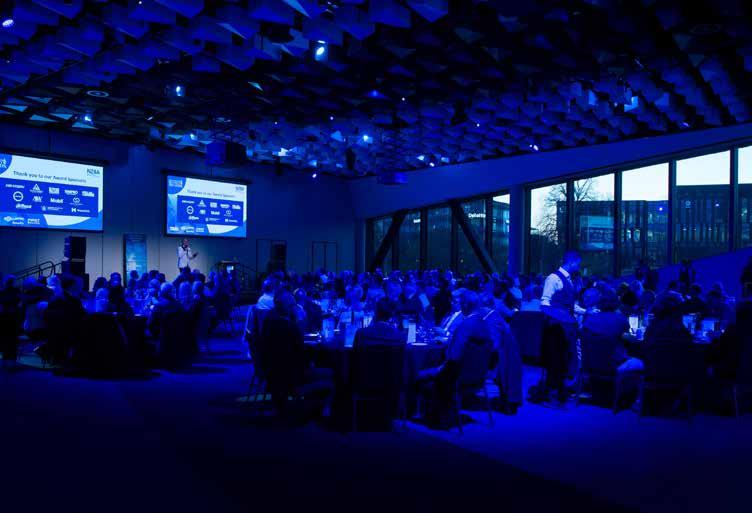
This award, presented by Brad Small from event sponsor Gallagher Group, is specific to larger corporates who have in excess of five technicians in their employment and recognises excellence, commitment, and professionalism of those operating as Security Technicians and providing installation and/or service duties. This award will be presented to an individual who has demonstrated not only technical expertise but also exemplary customer service and continually meets or exceeds best practice.
The recipient will be a person who provides a valuable role within the business and sets incredibly high standards.
The finalists were:
• Jordan McCormick (Evotek Technologies Ltd)
• Nathan Keepa (Advanced Security Group)
• Petrus (Mac) Olivier (Vision Systems)
Nathan’s nomination referred to his outstanding delivery of several extremely technically challenging electronic security projects for Advanced Security’s customer, the NZDF.

Whilst a lot of the content around the nature of the work is confidential in its nature, it is very evident that Nathan provided an extremely high level of technical skills and excelled as the technical lead on projects across


the South Island and even including offshore locations and on-board New Zealand Defence Force vessels.
Nathan has been described as being extremely humble in terms of his achievements, but his nomination clearly demonstrated a professional with superb workmanship, attention to detail and a desire to deliver the absolute best he possibly can.
This award, presented by Brad Small of Gallagher Group, recognises excellence, commitment and professionalism within the “Communications Centre Operator” sector of the industry. The individual will have demonstrated a high degree of technical competence and an outstanding level of service delivery that consistently exceeds customer expectations, be they internal or external customers.
The recipient will be a person who inspires others and consistently sets very high standards in their work performance. The finalists were:
• Isabel Laurie (Platform 4 Group)
• Jaye Ratu (FIRST Security)
• Paula Johnston (Global Security Solutions Ltd)
The winner of the Monitoring or Communication Centre Operator of the Year is Jaye Ratu (FIRST Security).

Jaye has been an integral part of the team since 2017. She is respected and highly trusted by her peers and the Senior Leadership Team. Through her commitment, outstanding performance, and reliability, she has been through a series of promotions from Operator, Senior Operator to Supervisor, and most recently to Team Leader.
Letters of Reference provided with Jaye’s nomination talk glowingly of her professionalism, commitment, communication skills and as the go-to person.
This award, presented by Brad Small of Gallagher Group, recognises the Security Consultant who has demonstrated outstanding performance in their role. Consultants often play a key role in offering expertise and insight that can transform the quality and effectiveness of service, product or system that is offered.
This category recognises the existence of a distinct skill sets and crucially, the way they are harnessed and managed, to make a substantial and quantifiable difference to the security strategy and/or practice of their customers.
The recipient will be a strong proponent of industry best practice, will be suitably qualified and experienced and be a person who inspires others and sets incredibly high standards. The finalists for Security Consultant of the Year were:
• Kieran Norton-Taylor (Alpha Protection Services Ltd)
• Lee Ashton (Optic Security Group)
• Michelle Welten (Global Security Solutions Ltd)
The winner of the Security Consultant of the Year is Lee Ashton (Optic Security Group).
New Zealand where there is no room for error and sound decision making is paramount.
Referees talk about Lee’s technical acumen, his professionalism and excellent rapport with customers. He is described as understanding customers and working closely alongside all stakeholders ensuring a roadmap is crafted to ensure all requirements are met.
Lee embodies the ethos of customer-driven advisory services, always communicating at the customers level, imparting knowledge and wise counsel, and providing security risk advice that is always standards-based, and fit-for-purpose.
This award, presented by Nik Boeinghoff of category sponsor Optic Security Group, recognises an organisation that has locally developed and delivered technical innovation and excellence within the security sector. The product or service will have been developed in New Zealand and be recognised as being “best in field” and “market leading” and will provide clear differentiation over competitor offerings. The finalists were:

• Protégé X Cloud by ICT
Jaye is the Communications Centre Operator extraordinaire at FIRST Security. Her role as National Dispatch Services Centre Team Leader, sees her move between developing her team’s capability as well as undertaking a hands-on role within the Centre.
Lee is a critical member of the Optic Security Group team, responsible for security risk advisory, design, and technical scope in relation to a range of high-profile projects. He brings a deep understanding of security consultancy, complicated solution builds and integration, having worked on some of the most secure and complex sites in
• Watchful Camera Monitoring Platform by Crosbies Security
• Responda by FIRST Security
The winner of the Outstanding New Product or Service of the Year is Responda by FIRST Security.
Responda is a ground-breaking solution that combines the human-
led on-the-ground security patrol infrastructure and experience of FIRST Security with powerful geospatial technologies and a meticulously developed app-based user interface, on-demand booking service and online payment platform. The service provides home and business owners with an alternative to fixed term contracts with services providers and is a welcome innovation.
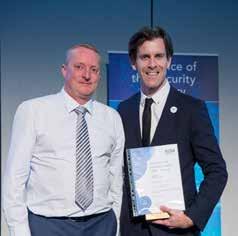
This award, presented by Bill Sole from Skills/ETEC, recognises an individual or organisation who has embraced the
role of integrators in bringing together security subsystems into a whole and ensuring those subsystems function together effectively.
The recipient will have demonstrated technical expertise, sound knowledge of security risk and needs assessments, exemplary customer service and consistently delivers a physical security programme that is supportive of a healthy enterprise. The finalists were:

• Nextro LP
• Richard Neeson (Advanced Security Group)
• Vision Systems
The winner of the Security Integrator of the Year award is Richard Neeson (Advanced Security Group).

Richard has over 20 years of experience in the security industry and excels with his technical knowledge, system and integration capabilities, and his ability to problem solve.
As the principal Technician Integration Engineer for Foodstuffs South Island, Richard oversees in excess of 200 sites, including
distribution centres and the head office.
Customer references included the following testimonials:
“Richard is held in extremely high regard, and his knowledge of security systems and the ins and outs of our business and sites is integral to the successful day to day running of Foodstuffs South Island.”
“Richard goes above and beyond what is required and often volunteers to take calls at all hours of the day and night to ensure business continuity. No problem is too big or small and if he doesn’t have an immediate answer, he can be relied on to find a quick solution”.

This award, presented by the category sponsor Hikvision, recognises an individual in the role of Business Development Manager, Sales Consultant or Sales Manager who has demonstrated outstanding performance in their role. These roles require a high degree of operational skill and knowledge together with a demonstrated empathy towards understanding the customers’ business needs and meeting their required outcomes.
The recipient will have a history of developing close and long-standing relationships with their customers and be viewed as providing a substantial and quantifiable benefit to the customers’ business operations. The finalists in this hotly contested category were:

• Harneet Saini (Advanced Security Group)
• Natasha Pennell (FIRST Security)
• Nik Boeinghoff (Optic Security Group)
The winner of the Customer Champion of the Year category is Natasha Pennell (FIRST Security).
client and getting the best outcomes for all parties. Natasha has a unique and widely recognised ability to “reach” people in terms of her relationships with both colleagues and clients, and this is what enables her to formulate and deploy the most effective security solutions for her clients.
As one customer referee states “From the very, very beginnings of our contact with Natasha, we knew she was exceptional. She’s super positive, very professional and has fantastic communication skills”.
Natasha is FIRST Security’s Wellington-based Senior Account Manager. Since joining FIRST Security in 2018, Natasha has through personal initiative, abundance of enthusiasm, and dogged commitment, made a major impact on the business and on the security outcomes of her clients. She is described as a person who is prepared to go the full distance to achieve the right outcome. She is supremely motivated and all about the
This award, presented by Matthew Johns from Mobilcard, recognises excellence, commitment, and professionalism within the “patrolling” sector of the industry, including to customers and outstanding acts. The award will be presented to the individual that has gone beyond what could have been expected of them in providing a level of service that exceeds the customers’ and/or managers’ expectations.
The recipient will be a person who inspires others within the team and
consistently sets very high standards in their work performance. The finalists were:
• Lily Wilson (Alpha Protection Services Ltd)
• Melvin Hallegado (Armourguard Security)
• Neekita Prakash (FIRST Security)
The winner of Patrol Officer of the Year is Neekita Prakash (FIRST Security).

up alongside the vehicle in question, the female driver was screaming for help. Behind her sat a male, who was punching the back of the headrest. Neekita wound down the passenger window and asked the woman to pull over, but she responded that she couldn’t as the assailant would not allow it.
Also in the car was a teenage girl in the front passenger seat and a baby (in a capsule) in the backseat. Neekita told the woman, who was clearly being injured by the assault to keep driving and she would follow.
vehicle and proceeded to illuminate the assailant with her heavy-duty torch until police arrived and arrested him.
Once the assailant was in police custody, Neekita drove back to the ambulance to check on the victims and where ambulance staff also checked her for any injuries.
From the very first day that Neekita started with FIRST Security she has shown professionalism and commitment to the Electronic Monitoring Services team, which is a nationwide mobile patrol team specifically trained and deployed to respond to alerts triggered by monitoring devices worn by people (wearers) serving non-custodial sentences, bail and orders in the corrections system. She carries out her duties with great care and respect for the wearer, and this, coupled with her willingness to help others, saw her promoted to “Team Leader” within two months of starting.
Whilst the nomination for Neekita talks glowingly of her high standards, professionalism and capabilities, the judges paid particular reference to an incident that occurred approximately 8.30pm Saturday 13th May 2023 when Neekita demonstrated true courage when she went to the aid of a member of the public who was being assaulted by her partner whilst driving a vehicle.
As Neekita exited the Southern Motorway she heard a persistent horn. She didn’t think too much about it initially but when she pulled
Neekita called 111 to request emergency services and stayed on the call whilst she followed the victim’s vehicle. At the next set of traffic lights, the assailant in the back seat jumped out of the vehicle and ran away. At this time Neekita gestured to the woman to proceed through the lights and pull over and from there took her first aid kit from her vehicle and administered first aid to the woman, who was bleeding and bruised, and to the teenager and baby who also had extensive bruising, whilst waiting for the ambulance to arrive.
At this stage, the assailant returned, grabbed the woman and bashed her head into the bonnet of the car, Neekita intervened, positioning herself between the assailant and the woman. The assailant then attacked Neekita, including presenting a knife and threatening to kill her along with the three victims. Neekita instructed the victims to keep back and away from the knife wielding assailant whilst she continued to shield them.
On hearing the sound of the ambulance getting closer, the assailant fled on foot again with Neekita observing the direction he travelled so she could relay the information to the police.
Once the ambulance arrived and officers were attending to the victims, Neekita returned to her patrol vehicle and followed the assailant who she quickly found hiding in an alleyway. On being threatened by the assailant who had approached her vehicle, Neekita unlocked and opened her door with force into the assailant who lost his footing and fell back onto the road. She then reversed and parked her
This award, presented by Philip Charles from category sponsor Strategic Defence, recognises excellence, commitment, and professionalism within the “guarding” sector, including service to customers and outstanding acts. This award will be presented to the individual who has gone beyond what can reasonably be expected of them in providing a level of service that exceeds the customers and/or managers expectations.
The recipient will be a person who inspires others and consistently sets very high standards in their work performance.
The judges have also noted that this was a highly contested category with 17 nominations received, all of a very high standard. The scoring was so tight that the Judges were unable to separate several of the nominees and hence we have four finalists. The finalists were:
• Leitualamavae Vaa and Shelley Herbert (Armourguard)
• Ellen-Jane Macpherson (Watchdog Security Group)
• Johnny Mapusua (Red Badge Group)
• Lositoa Moala (FIRST Security)
The winner of the Security Officer of the Year is Leitualamavae Vaa and Shelley Herbert (Armourguard).

Approximately 1530 hours on the 10th of December last year, an altercation occurred between a couple at the Otahuhu Rail Station that resulted in the female becoming extremely upset and suicidal, threatening to jump over the rail bridge.
Leitualamavae and Shelley initially held the woman’s hands and provided reassurance, however after calming her down the woman became agitated again and ran back to the rail bridge and started climbing over the rail, forcing Leitualamavae and Shelley to pull her back down and away from the rail.
They continued to hold, reassure, and gently restrain the woman pending arrival of emergency services.
This award, presented by Joshua Parsons from category sponsor Watchful, recognises an individual who has made outstanding progress in professional development and training for their role in the guarding sector of the security industry. They will have displayed commitment towards training and achieving results through the NZQA national qualification framework.
The recipient will be a person who is self-motivated, sets goals, and aspires to progress their security career. The finalists for this award were:
• Joseph Scott (Allied Security)
• Lily Wilson (Alpha Protection Services Ltd)
The winner of the Guarding Sector Trainee of the Year is Lily Wilson (Alpha Protection Services Ltd.

On the 28th October last year, Lily Watson was working with a colleague doing her patrol route in the Christchurch CBD. They had finished their lockdown as scheduled and were completing their logbook entry for the customer when Lily heard a loud cracking sound coming from inside the premise. She felt uneasy and told her partner they should investigate, even though it would put them slightly behind on their patrol.
After re-entering the complex Lily could hear an odd buzzing sound and when she investigated, she found the cleaner lying on the ground next to the still-going floor polisher and with a large head wound and having a seizure.
Lily immediately had her partner call an ambulance whilst she placed the cleaner into the recovery position. She then retrieved a near-by defibrillator and followed the instructions of the 111 operator until the critical response team arrived with skilled paramedics. The gentleman was rushed to hospital in a critical condition and was later reported as being in a serious but stable condition having experienced a brain bleed.
This award, presented by Nicholas Dynon of category sponsor New Zealand Security Magazine, recognises excellence and commitment of those working within specialised security roles, including but not limited to, cash-in-transit services, cash-floor services, council compliance services and concierge roles. The award will be presented to the individual who has gone beyond what could have been expected of them in providing a level of service that exceeds the customer and/ or managers’ expectations.
The recipient will be a person who inspires others within the team and consistently sets very high standards in their work performance. The finalists were:
• Agnes Devon (Global Security Solutions Ltd)
• Jill Priest (FIRST Security)
• Miranda Cannon (Red Badge Group)
The winner of the Specialised Security Services Professional of the Year is Jill Priest (FIRST Security).

As FIRST Security’s Client Services Manager for the Bay of Plenty, Jill is responsible for customers in the Bay of Plenty, Coromandel, Hawkes Bay and Gisborne areas. It is a large area of responsibility and includes regulatory compliance activities including animal control, smoke and noise complaints and freedom camper regulation.
Jill gives a human face and formidable personality to security for her customers, and this combined with a mastery of her trade, makes her a truly inspiring leader and customer champion. As customers noted, Jill is innovative in developing security deployments and solutions that meet their specific needs. If service delivery isn’t exceeding customer expectations, she finds a better way.
One example of this is where Jill significantly reduced the incidents of illegal camping and fostered a culture of compliance among visitors by taking an educational approach, leading to a more harmonious coexistence with the local community.
This award, presented by Graeme McKenzie from category sponsor Alarm Watch, is specific to SMEs (Small to Medium Enterprises) with five or less technicians in their employment and recognises excellence, commitment and professionalism of those operating as Security Technicians and providing
installation and/or service duties. This award will be presented to an individual who has demonstrated not only technical expertise but also exemplary customer service and continually meets or exceeds best practice.
The recipient will be a person who provides a valuable role within the business and sets incredibly high standards. The finalists were:
• Elliot Wood and Jamie Wootton (Alarm Solutions 2002 Ltd)
• Daniel Malan (Global Security Solutions Ltd)
• Michael (Mike) Fairbrother (Alarm Solutions 2002 Ltd)
The winner of the Install and Service Electronic Sector (SME) Technician of the Year is Daniel Malan (Global Security Solutions Ltd).

The Security Supervisor or Operations Manager of the Year Award, presented by Jack Alpe from category sponsor Guardhouse, recognises those who through security expertise, operational knowledge, customer service and skilful and innovative leadership, ensure the delivery of services that consistently exceed customer expectations.
Security Supervisors and Operations Managers provide a critical function ensuring service delivery and the recipient will be an inspirational leader and innovator, team focused and committed to delivering exceptional service on a 24 x 7 basis.
The judges noted that there were 24 nominations for this category, almost all of an exceptional standard, and that the scoring was extremely close. The finalists for the Security Supervisor or Operations Manager of the Year were:
• Beyers Rautenbach (FIRST Security)
• Isaac Taingahue (Optic Security Group)
• Paul Davenport (Advanced Security Group)
The winner of the Security Supervisor or Operations Manager of the Year is Isaac Taingahue (Optic Security Group).

Daniel is described as not just an exemplary electronic security design and install technician, but also a true customer champion. His dedication to providing unparalleled service and support to his customers sets him apart from his peers in the industry.
One of Daniel’s remarkable qualities is his goal to “get it right, first time, every time”. This mindset drives his work ethic and attention to detail. By meticulously planning and executing installations and services, he minimizes the likelihood of issues arising, thus saving clients time, unnecessary disruptions, and costs.
His dedication to achieving excellence in every aspect of his work has had a profound impact on his employers’ reputation and growth.
experience
Gateway Project, the installation of integrated security systems at Transpower NZ, and the installation of access control, CCTV and duress systems for The Great War Exhibition.
The submission for Isaac included glowing references from within the company, his team and customers. They all comment on his growth from a technician to a manager and leader who is widely respected and focused on delivering exceptional and innovative service.
As one customer noted, Isaac displays the following qualities: he is respectful, kind, and courteous, he listens resonantly, he solves problems, he is a great communicator, he delivers what he promises, and he builds longterm relationships.
This award, presented by Gray Paterson, NZSA Chairperson, is in honour of a stalwart of Aotearoa New Zealand’s security industry, Ian Dick. Ian worked tirelessly for the betterment of the security industry and was instrumental in developing and implementing many of the codes and standards that form the cornerstone of the industry. The award goes to the award category winner with the highest individual score from the judges.
The winner of the 2023 Security Professional of the Year Award is Neekita Prakash from FIRST Security.
record

Four cybersecurity strategies can help lower an organisation’s cyber risk profile and therefore lower their cyber insurance premiums, writes Geoff
for Asia Pacific & Japan at Yubico.
Cyberattacks are growing in frequency and so are the costs associated with them. According to the 2022 Cost of a data breach report by IBM and the Ponemon Institute, an alarming 83 percent of organisations experienced more than one data breach in 2022 and the average cost is now NZD 7.14 million. As a result, many organisations want cybersecurity insurance, but the escalating cost and regularity of cyberattacks have led to insurers inflating their premiums.
According to Veeam’s 2023 Ransomware Trends Report, cyber insurance is becoming very expensive and there is a concern that common threats like ransomware are increasingly being excluded. 74 percent of organisations with cyber insurance said they have had their premiums increased and 21 percent stated that ransomware is now excluded.

Cyber insurance covers financial loss and expenses businesses may suffer due to a cyberattack. However, as cyber insurers better attempt to quantify and control for loss, the security postures of organisations applying are often inspected. Those who rely solely on traditional passwords and some legacy multi-factor authentication (MFA) tools can be ineligible for cyber insurance.
Here are four recommended cyber security strategies organisations should
Schomburgk, VPimplement to help lower their cyber risk profile and therefore lower their cyber insurance premiums.
1. Adopt the Essential Eight
The eight mitigation strategies set out in the Essential Eight are designed to minimise the potential impact of cybersecurity incidents and to improve cybersecurity maturity. It assists security leaders with self-assessing the maturity of their organisation’s security infrastructure using a Maturity Model with three maturity levels for each of the eight mitigation strategies.
No single mitigation strategy is guaranteed to prevent all cybersecurity incidents, so organisations of all sizes are recommended to implement the eight essential mitigation strategies as a baseline. Unfortunately, complacency is their enemy, because organisations will adopt one mitigation strategy and stop there without pursuing the other strategies.
MFA is now a mandatory security requirement for most cyber insurance providers. This security control was mandated because 81% of breaches are caused by stolen or weak passwords, proving that static credentials are no longer secure. Since most cybercriminals depend on stolen user credentials to access a private network, modern phishing-resistant MFA tools like security keys prevent these attempts to compromise an organisation’s network.
Security Keys leverage FIDO2 (WebAuthn) to facilitate strong MFA that is phishing resistant by design. FIDO2 protects against the most common MFA theft schemes, like push bombing, fake login portals and social engineering. By leveraging security keys with FIDO2 authentication, enterprises can roll out easy-to-use, strong phishing-resistant MFA.
Phishing resistant or password-less MFA uses a more secure method to verify authorised connection requests without requiring a password, either using biometrics like fingerprints, or decentralised PINs, which are not shared secrets; therefore, they provide a more secure alternative for login when the Internet is unavailable.
However, when choosing an MFA solution, they are not all created equal and there are legacy MFA methods that are not phishing resistant. These include receiving a one-time passcode (OTP) via text message or email or using mobile-based authenticators; both are highly susceptible to phishing attacks and account takeovers.
They do not offer phishingresistant MFA-like hardware-based authentication methods like FIDO2backed security keys. In fact, phishing resistant MFA is required as part of the maturity level three, the highest level of maturity in the Essential Eight Maturity Models.
Contact centre specialist Afni has reduced cyber insurance premiums by 30 per cent by adopting security keys.
Moreover, the fact that the company is seen to be taking its security seriously and being transparent about its security practices has helped establish Afni as a trustworthy supply chain partner.
Having a Zero Trust architecture demonstrates a proactive defence mindset. With Zero Trust, a user’s identity and permission settings are continuously verified even after network access is granted, especially when they attempt to access highly sensitive assets.
According to IBM’s report, organisations that do not employ a Zero Trust approach to security typically pay an average of NZD 1.64 million more in breach costs than those that do.

For organisations with a remote workforce (and many organisations are nowadays), cyber insurers will look for evidence of endpoint protection. This is best implemented through a Zero Trust strategy, which will present cyber insurance applications favourably.
Employees fall victim to cybercriminal deception because they don’t know how to recognise a cyberattack or are too scared to admit they may have shared something they should not have. Cybersecurity awareness training, coupled with a regular
simulated phishing attack schedule, will keep staff vigilant to common cyber threats.
Humans will always be the weakest link in every cybersecurity strategy. The value of a costly cybersecurity investment is instantly invalidated if an employee can be tricked into handing over their credentials. Cyber insurers understand how susceptible staff are to getting swindled by cyberattackers, so they’ll be delighted to find evidence of a cybersecurity awareness training policy.
The best way to reinforce the cyber awareness training employees receive is to reward their success instead of punishing employees when they make a mistake. Organisations must explore their lived culture, purpose and values and how they impact their employees’ engagement with cyber risk.
As cyberattacks continue to rise in frequency and cost, organisations must take proactive steps to mitigate their cyber risk, which will help to lower their cyber insurance premiums. Implementing modern, phishingresistant MFA is one of the most uncomplicated and effective controls an organisation can implement to reduce the reliance on the user’s vigilance and prevent cybercriminals from gaining unauthorised access.
Organisations that implement the right tools and strategies will not only significantly reduce their cyber risk but can also lower their cyber insurance premiums.
According to the first-ever World Security Report, large global companies lost a combined $1 trillion in revenue in 2022 due to physical security incidents. Economic unrest is expected to have a major security impact over next 12 months
In addition to economic unrest, the report also found that companies anticipate a surge in social unrest, climate change, fraud and theft. As a result, physical security budgets are predicted to increase significantly to keep people, property and assets safe. Security leaders intend to focus investments on advanced technology and providing security professionals with additional skills and training.
Fraud – deception intended to result in gain – is likely to be the biggest external threat over the coming year. The leaking of sensitive information is predicted to be the biggest internal threat. Dangers posed by hackers, protestors, spies and economic criminals are expected to soar.
Commissioned by Allied Universal and its international business, G4S, the World Security Report documents opinions of 1,775 chief security officers (CSO) or those in equivalent positions from 30 countries. Working for large, global companies with a combined annual revenue of more than $20 trillion – a quarter of the world’s gross domestic product, CSO participation was independent and anonymous.
“As the world’s leading security company, we commissioned this report for the benefit of the entire industry and the companies we protect,” said
Steve Jones, Allied Universal’s global chairman and CEO.
“It comes at a time when organizations across the globe are increasingly navigating more complex security hazards and threats. The research shows the impact of security threats on organizations is multidimensional – from the disruption of productivity to the loss of customers, to the potentially staggering financial impact.”
Among the report’s high-level findings:
• More than USD$1 trillion in revenue was lost by companies as a consequence of physical security incidents in 2022.

• One in four (25 percent) publiclylisted companies reported a drop in their value following a physical security incident over the last year.
• Institutional Investors surveyed
estimated an average decrease in value of 29 percent for publiclylisted companies due to a significant security incident in the last year.
The report found that economic unrest will be the biggest security-impacting hazard over the next 12 months – this was according to nearly half of CSOs surveyed. Asia Pacific and Sub-Saharan Africa are anticipated to be the most impacted regions in the world.
After economic unrest, climate change is anticipated to be the second greatest hazard by 38% of participants. Social unrest is expected to pose a threat by 35 percent of CSOs, up from 31% the previous year, and one third of CSOs expect disruption to energy supplies to impact security.
Unsurprisingly, 32 percent of respondents indicated that the threat
from war and political instability is also likely to increase, up from 25 percent last year. Interestingly, the biggest hazard last year was pandemics reported by 42 percent of those surveyed.
Internal threats are expected to increase next year, with 92 percent of CSOs anticipating their company will be targeted.
Misuse of company resources or data was identified as the most common internal threat by 35 percent of respondents, followed by leaking sensitive information at 34 percent, which is on the increase – particularly in the Asia Pacific region.
Unauthorised access to company resources or data, industrial espionage and intellectual property theft are also all expected to increase in the next year. While misuse of company resources or data was the internal incident most likely to have driven companies to improve their security in the last 12 months.
CSOs expect all external threats to increase in the next year, with fraud predicted by 25% of CSOs to be the biggest external threat, followed by phishing and social engineering (24 percent) and theft of company physical property (23 percent). Fraud was
expected to most likely impact SubSaharan Africa compared to any other region next year.
Geopolitical tensions are expected to compromise the security of supply chains and could result in disruptions to global trade in the next year, according to 87 percent of CSOs. Businesses in the financial services and consumer staples sectors predict the most significant increases in external threats, closely followed by those in the energy and real estate sectors.

Threat actor groups include violent criminals, petty criminals, economic criminals, terrorists and subversives (hackers, protestors, or spies). The two groups predicted to cause the most security incidents in the next year are subversives and economic criminals at 50 percent and 49 percent respectively – a significant increase on the previous year.
Security incidents committed by terrorists are expected to rise from 19 to 26 percent next year at a global level, while security threats from violent criminals are predicted to increase next year, from 27 to 33 percent.
In North America, CSOs expect security incidents by violent criminals to increase from 41 to 49 percent. North America is the region expected to be most impacted by both economic criminals and subversives.
Respondents believe that the most dangerous region to operate in is northeast Asia. Southern Europe, North Africa and Southern Africa were all considered the least dangerous.
Companies actively operating in dangerous regions are more likely to view these regions as risky when measuring threats and potential risks, compared to companies who do not have a footprint in those territories.
“It is clear that global companies expect security professionals to have a multitude of skills that they were not expected to have 10 years ago,” wrote Allied Universal CEO Steve Jones and G4S Executive Chairman Ashley Almanza. “For example, it is now much more important for a security professional to have technological capabilities and a high level of customer service training.”
People skills in frontline officers are more important than physical attributes of strength according to 9 out of 10 respondents. The top traits and skills that are extremely important for frontline security officers to possess are: Integrity and honesty, a strong understanding of technology, Industryspecific experience, and Customer service skills.
“Global companies recognize the value of highly skilled and intelligent security professionals protecting their
most important assets, with 94% saying the ability to speak multiple languages and 96% saying a higher education degree are important for a frontline security professional,” wrote Jones and Almanza.
Recruiting security officers will be a challenge for 8 in 10 CSOs.
CSOs rated their technological advancement in terms of their physical security program, with a detailed set of criteria. These ranged from minimal tech use, to advanced and followed by cutting edge. According to these criteria, Latin America was identified as the most advanced region in the world in its use of cutting edge technology.
The shift from purely staffed security operations to technologyenabled, is challenging according to 9 in 10 CSOs. The top two barriers companies face when implementing technology are the cost to implement and the cost to maintain.
A third of CSOs are concerned about the lack of skills in the security workforce and the lack of internal skills in their own company to implement technology. They found
that technology improves the overall effectiveness of security operations, enabling security staff to be more productive and efficient.
“As the pace of technological advancement quickens, its importance as part of the best-designed security solution increases,” wrote Jones and Almanza. “The challenges of combining the right technology with the right people, are made evident in this report.
CSOs were generally of the opinion that physical and cyber security are increasingly interlinked. 9 out of 10 respondents said cyber threats that threaten physical security are challenging to their businesses. Yet, 9 in 10 CSOs said company leaders are more concerned with cyber than physical security.
According to survey responses, when a company uses a single third-party security provider for more than 80% of its security requirements, the number of incidents falls and confidence in being able to deal with security incidents effectively, increases.

The average level of confidence for those with a high level of providerdelivered security is 82 percent compared to 54 percent for those with low involvement.
“The data shows that a trusted partnership between a customer and their security provider transforms the effectiveness of the overall security program,” wrote Jones and Almanza.
Physical security budgets are expected to significantly increase at 46 percent of respondent companies, with budgets in North America expected to rise the most of any region. Security budgets represented approximately $660 billion (3.3 percent) of global revenue at respondent companies in 2022.
More than half of CSOs will prioritise their spending on new technology and training staff. Artificial intelligence (AI) is top of the agenda for future physical security technology investment, with 42 percent intending to invest in AI and AI-powered surveillance over the next five years.
The three top budgetary drivers globally are expected to be rising operational costs, international economic instability and domestic security concerns.
The research was conducted with two audiences: global company physical security managers and global institutional investors
In relation to global company security managers, research was carried out via an online survey between 20 and 31 March 20 2023, with a total of 1,775 respondents across 30 countries and 13 languages. A quota-based random selection process was used within each country by industry and each country’s data was weighted to have an equal proportion in the global results (with the exception of the U.S. to reflect their larger economy).
In relation to global Institutional Investors, online research on 17 April 2023, with a total of 200 investors. A quota-based random selection process was used to select them by type and geography.
The Government has announced a commitment to roll out a national multi-agency approach to better respond to 111 calls for people experiencing mental distress.
While there are already pilots and examples of joint Police-Health responses in some areas, the Government will make these approaches available nationwide over the next five years, Health Minister Ayesha Verrall said in a 30 August announcement.


According to Police Minister Ginny Andersen, the Government will also expand co-response teams to respond to 111 calls for people in mental distress,.
“Co-response teams are already operating in six police districts and involve Police, mental health professionals and in some cases ambulance officers or a Māori health navigator. They’ve been locally developed and support early intervention, crisis responses, and access to health and social supports,” Minister Andersen said.
According to Minister Verrall, Police and the Ministry of Health had been asked to jointly report back to Cabinet next March with a plan of how multi-agency responses could be implemented and what resources would be required.
“The plan we have asked for will set out how to transition from a Police-led response to a multi-agency response to 111 calls for people in mental distress over the next five years,” she said.
“We want multi-agency responses in every Police district and the plan
will help ensure people who present in mental distress via 111 receive the support they need, from the right people at the right time.”
Minister Andersen said calls for people in mental distress represented around 10% of all 111 calls for assistance. “Mental distress-related demand on Police is increasing and impacting on their ability to respond to criminal offending and core Police business,” she said.
“While Police will always have a role in responding to emergency calls when there is a threat to life or public safety, we know that a Police-led response is not always fit for purpose for people experiencing mental distress.
“A combined response involving police, health and other social agencies will better support people presenting with mental distress via 111, along with easing demand on frontline Police,” she said.
Along with establishing co-response teams made up of police, mental health professionals and ambulance officers in each district, the Government will look to improve triaging in Emergency Communication Centres, increase the use of telehealth and digital counselling, and develop multi-agency crisis hubs as alternatives to relieve pressure on emergency departments.
“We will also explore how we can provide greater mental health-related training to existing workforces,” said Minister Verrall.

The Australian Retailers Association (ARA) has brought together Australia’s top major retailers to work together to protect frontline retail workers and prevent the escalation of retail crime.
The NSW Police Commissioner Karen Webb and forensic anthropologist and criminologist Dr Xanthé Mallet were among guest speakers at the inaugural ARA Retail Crime Symposium.
According to a 15 September media release, the Symposium identified several priorities, the top three being:
1. Tougher penalties against criminals that assault retail workers required in Victoria, Queensland, Western Australia, Tasmania and ACT.
2. Better education on the impacts that retail crime has on retail workers and customers.
3. More informed data to highlight the significance of retail crime in Australia.
ARA CEO Paul Zahra said the surge in retail crime is heavily impacting dedicated frontline retail staff – many who are young and in their first job. “Our aim is to protect our retail teams and their livelihoods. That’s why we are taking a proactive stance to address this issue,” said Mr Zahra.
Our retailers are working together with police and criminal experts as well as unions to protect businesses and staff from organised crime attacks and increased assaults as well as general theft.
All retail workers, whether they’re a casual in their first job or doing the night shift at the local convenience store, have a right to feel safe at work.
Most of our members have seen an increase in retail crime and have had enough of the toll this is taking on their teams.
It shouldn’t be the norm to be spat at, yelled at or punched for simply doing your job. Tougher laws, like those recently introduced in SA, NT and NSW, will better protect retail workers and keep them safe.
A recent ARA online membership survey of 102 retail organisations revealed:
• More than 91 percent of respondents have experienced retail crime.
• Shoplifting followed by verbal abuse and customer aggression were the top three criminal activities experienced by retailers.
• 47.96 percent of respondents have seen an increase in organised crime.
• Out of the respondents who have had to respond by temporarily closing their businesses, nearly 45 percent of those came from a small enterprise and more than 30 percent from major retailers.
• Most respondents who said they have noticed an increase in organised crime were from Victoria.
Shop, Distributive and Allied Employees’ Association (SDA) National Secretary Gerard Dwyer said the safety and well-being of retail workers is paramount, and everyone must work together to protect them from harm.
“The ARA’s initiative to address retail crime is commendable, and we look forward to collaborating with industry stakeholders to find effective solutions,” Mr Dwyer said.
“Our justice system also has a role to play in protecting businesses and staff. We have advocated for tougher penalties for a good reason – we think if enforced the new tougher penalties will help businesses immensely and reduce the pressure on police.”
• Mounts for our 5 most popular models of power supplies; 6 key-hole anchor points for easier mounting



• Lift off hinged doors for added convenience
• Louvre ventilation on doors
• Roller ball reed switch provides anti-tamper to front and rear of cabinet









• 6 x 25mm knockouts, 2 each sides and bottom
• Medium cabinet holds 5 x 7 A/h batteries







• Large cabinet holds 14 x 7 A/h batteries

• Cam lock for security
• Front lip to retain batteries and for additional strength
• Removable shelf and removable back plate to facilitate easy bench mounting of equipment

• Lip return on door for greater rigidity



























• Durable powder coated white finish
• Heavy gauge 1.2mm steel

Designed, tested and produced in New Zealand.
For



















Two functions are available



Momentary or maintained contact (specify when ordering)








































Switch rated at 6A @ 28 VDC Supplied random keyed Re-key or master key at any locksmith Front or rear fixing Applications


Access control, air-conditioning, lifts, lighting etc New options with this versatile product Key switch supplied loose Mounting bracket

Escutcheon








Mounted on PDL plate with alloy cover Designed, tested and produced in New Zealand.



With











models in stock, make Loktronic your go-to supplier. Fully monitored















Aotearoa New Zealand’s own Women in Security Awards return for a fourth year, retaining its fierce independence and introducing ground breaking new award categories reflecting the current threats we face.

Defsec Media Limited, the New Zealand Security Sector Network (NZSSN), and Women in Security & Resilience Alliance (WISECRA) are pleased to announce that nominations for the 2023 Women in Security Awards Aotearoa are now being accepted.
The Women in Security Awards Aotearoa (WiSAA) initiative was established in 2020 to promote the role of women in sectors where they are still significantly under-represented, and to recognise women who are advancing Aotearoa New Zealand’s security, risk and resilience sectors.
“What makes WiSAA uniquely special is the fact that it cuts across security domain boundaries and across the public, private, and community sectors in a way that no other awards programme in our sector does,” said NZSM chief editor Nicholas Dynon. “The awards are also famously independent, which means no sponsorships, no paid promotions, no gala award events, and no trophies.”
“This year we’re retiring our old cohort of award categories in favour of what we believe to be a revolutionary new approach in which our nine categories correspond to the protection of New Zealanders from particular threats,” said Nicholas.
“Identifying the right categories was by no means an exact science, but the process did take into account the results of the National Security Public Survey, the current National Security Intelligence Priorities, and the weight of recent public discourse.”
And the categories are:
1. Preventing retail and violent crime
2. Securing organisations and infrastructure
3. Disrupting information and cyber threats
4. Countering incivility and violent extremism
5. Confronting bullying and online harm
6. Combatting fraud and misrepresentation
7. Protecting borders, trade, and biosecurity
8. Responding to natural disaster events
9. Building resilient communities
Nominees must be women, or identify as women, with more than three years of experience in any occupation within either the physical security, personnel security, information security, cybersecurity, investigations, intelligence, risk management, emergency management or resilience domains, and be actively practising in Aotearoa New Zealand.
Nominations are encouraged from across the private, public (including government, education, military, and law enforcement) and community sectors. It is important to note that these awards are open to the broader security sector, not just ‘industry’. Selfnominations are welcomed.
Nominations will be assessed on the extent to which the nominee’s efforts over the past 18 months reflect the values articulated in the category descriptions (refer to website below).
The deadline for nominations is 4:00pm, Friday 10 November 2023, and nominations of no more than 1,000 words (including supporting material) are to be emailed to awards@ defsec.net.nz.
For more information, including detailed descriptions of each award category, visit https://defsec.net.nz/ women-in-security-aotearoa/.
A judging panel of eminent sector professionals is set to be announced in mid-October, and winners will be announced via the Defsec Media Limited website on 01 December.
Central and Local Government has announced a range of new measures to tackle lowlevel crime and anti-social behaviour in the Auckland CBD to complement scaling up of police presence.
“Police have an important role to play in preventing and responding to crime, but there is more we can do to support them in addressing some of the anti-social behaviour that makes central Auckland feel unsafe,” Police Minister Ginny Andersen said in a 09 September announcement.
“In addition to retaining the highly successful safety hub at Queens Wharf established by Heart of the City for the Women’s FIFA World Cup, we’re establishing three additional hubs at High Street, Queen Street and Karangahape Road,” Minister for Auckland Carmel Sepuloni said.
Working together with volunteer wardens and Community Patrols New Zealand, the four new safety hubs will be developed as a base for community patrols and Māori and ethnic wardens, allowing a more effective presence in the city centre of safety personnel.

These hubs will be a base for community volunteers, such as Community Patrols NZ volunteers and Māori wardens, to provide additional safety support at key locations across Auckland Central. They will be staffed by Community Patrols NZ volunteers and Ngā Watene Māori O Akarana wardens, and supported by the Police.
The hubs will be open to the public – they will be equipped to respond quickly to minor incidents, provide assistance, and to help connect individuals with emergency services.
The establishment of the additional safety hubs is expected by the end of
October, with the support of $100,000 of Government funding.
“Police will always be the first responders to crime, but these wardens and Community Patrollers are able to deal with lower-level anti-social behaviour, which will free up Police time to deal with more serious crime,” Minister Andersen said.
“We saw real success following the safety hub established as part of the FIFA Women’s World Cup, and our announcement today will build upon that success. The hub had great feedback from Aucklanders, including that it provided a tangible community safety presence,” Minister Sepuloni said.
“Police have significantly increased
the number of foot patrols by 243 per cent in Auckland’s city centre over the past year and established a new base to assist with their increased foot patrols,” Minister Andersen said.
Mayor Wayne Brown said that Auckland Council will match the $100,000 for the initiative from funding set aside in the annual budget for safety initiatives.
“Auckland Council has committed to a full-time coordinator to ensure a joined-up approach with the Māori, Pacific, and ethnic Wardens, alongside Community Patrols New Zealand and Police. Further funding could be made available if the hubs prove to be a success,” he said.
Legislation aimed at addressing the inability of authorities to hold ram raiders accountable for their crimes has passed its first reading in Parliament.

Bill will create a new ram raid offence in the Crimes Act 1961, with a maximum penalty of 10 years’ imprisonment, according to a 29 August announcement.
“Sadly, we know many ram raid offenders are children and young people. While the community interventions we’ve introduced have worked for the majority of young offenders, this is about making sure we have the right tools to escalate our response for repeat offenders,” said Justice Minister Ginny Andersen.
“This Bill recognises the significant property damage and harm caused to victims by ram raiders. We’re determined to get on top of this destructive behaviour and these laws
will target those who repeatedly engage in ram raids and ensures that there are greater consequences and accountability for their behaviour.”
According to the announcement, the Bill enables 12- and 13-year-olds alleged to have committed the new offence to be charged in the Youth Court, similar to other serious offences, such as aggravated burglary.
“This increases the options available to deal with children who offend, for example, the Bill gives Police the ability to apply for bail conditions. Increasing the range of interventions will help stop repeat offending by children,” Minister Andersen said.
The Bill also contains new measures to crack-down on people who commission or reward children and young people to offend, or who post offending online.
A new aggravating factor in the Sentencing Act 2002 will apply when an adult encourages or incites a person under 18 to carry out an offence. “This aims to deter adults from exploiting children and young people and leading them into a life of crime,” Andersen said.
There will also be a new aggravating factor for posting offending online, with the posting of criminal behaviour online a common feature of ram raids that can encourage “copy-cat” offences.
“It’s completely unacceptable that a victim may be retraumatised by seeing the harm caused to them posted online. This sends a strong message to those who post their crimes in a bid to gain notoriety that they could now face tougher consequences,” Minister Andersen said.
ASIS accredited certifications can help you reach your career goals.
“PCI is an important element in the ASIS
Validates your ability to conduct security investigations through the effective use of surveillance, interviews, and interrogations. Designed for those with 5 years of related experience.
• Provides independent confirmation of your specialized skills in security investigations

• Gain global recognition by your peers and industry
• Get a competitive edge in the marketplace
• Enhance your career and earnings potential
• Enjoy personal satisfaction and professional achievement
Be one of the many ASIS board certified practitioners who are leaders, mentors, and trusted strategic partners, serving both their organizations and the profession.
Visit
C ertification programme, dovetailing into both CPP a nd PSP for a comprehensive understanding of broader security industry objectives. An effective and reliable investigation depends on objectivity, thoroughness, relevance, accuracy and timeliness. PCI helps identify critical investigative outcomes, including evidence collection, case management, and the process of offender detection, iden tification, interview and prosecution. Good physic al security designs, together with robust policies and procedures are key elements in a successful investigation. The PCI certification p rov ides an insight into how these pieces interrelate."
- D avi d H orsburgh, MSc CPP PSP PCI


• Build a strong, dedicated team committed to high standards and continuing professional development
• Promote ongoing education of critical job knowledge and skills
• Feel confident that your staff are using best practices
• Recruit the most qualified professionals
• Reinforce or elevate your organization’s reputation and credibility
Increase the competency level of your staff by supporting your security professionals in their certification journey.
unbreakable universal mounting


•Low power consumption - low operating temperature

•One product suits floor and wall mounting




•Universal armature - offsets to 55º to suit doors opening past 90º • Wall mount extensions available •12 & 24 VDC selectable • Push off button with no residual magnetism • Oversize armature for easy alignment • Emergency release button
•Electroless nickel plated armature and electromagnet •Stainless fastenings • Full local support and back up
Designed, tested and produced in New Zealand to AS4178
A)Wall mounted,126mm extn. tube (overall 202mm)
B)Wall mounted, 156mm extn. tube (overall 232mm)



C)Wall mounted, 355mm extn. tube (overall 431mm)
This device enhances an outstanding range of unbreakable products which conveniently hold open fire doors. When a smoke/fire alarm is activated the magnet instantly releases the door to the closed position to prevent the spread of smoke and fire. These units feature a choice of 3 covers for optimum aesthetic appeal and durability. The installer can utilise one device for surface mounting or for recess mounting.
